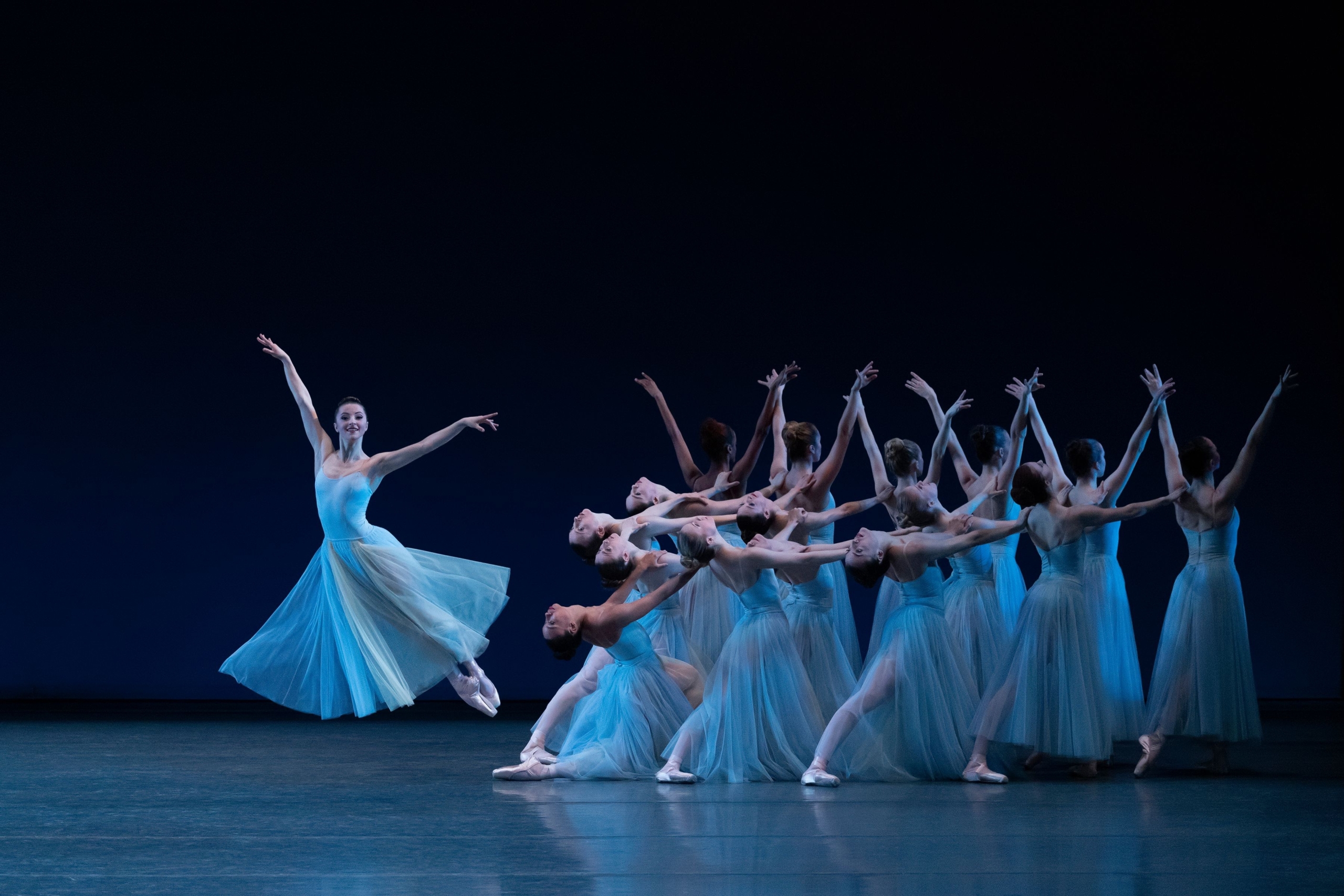
By Steven Zeitchik
Artists at one of the city’s most revered cultural institutions have authorized a strike, saying that their current salary simply can’t cover the bills, the Rag has learned.
Musicians at the New York City Ballet, whose home is at Lincoln Center, voted 54-2 this past weekend to walk out on the job if they can’t come to an agreement on a new contract, according to a person familiar with the vote who was not authorized to discuss it publicly. The most recent contract expired last week, and negotiations over a new one have stalled.
The vote comes as performers around the country are pushing back against what they say is an undervaluation of their creative efforts. Members of the Screen Actors Guild and Writers Guild of America have refused to work for months over alleged unfair pay, among other issues.
While union leaders for the Ballet orchestra say they don’t want to strike — the season is set to begin in just two weeks — they see it as a plausible outcome if management won’t budge.
“It hasn’t reached SAG or WGA levels yet, but it’s getting there,” said Tino Gagliardi, lead negotiator and longtime president of Local 802 of the American Federation of Musicians, which represents the performers, and current president of the American Federation of Musicians. The union counts Taylor Swift and Bruce Springsteen as members. A bargaining session is set for next week.
Two other sets of workers at the Ballet — dancers and stagehands – belong to other unions under extant contracts. Alicia Cook, a representative for the dancers union, the American Guild of Musical Artists, said in a statement that “AGMA stands in solidarity with our Local 802 colleagues in their contract dispute with New York City Ballet. We urge a swift and just resolution that respects and reflects the essential role that these musicians hold within the City Ballet community.”
A representative for the stagehand union, IATSE Local One, did not immediately reply to a request for comment.
Founded by renowned choreographers George Balanchine and Jerome Robbins, NYCB is one of the most well-regarded dance companies in the world, with performers including star dancer Sara Mearns. The Ballet draws packed crowds for its annual production of “The Nutcracker” and other performances. Last year a new work, “Play Time,” debuted with a score from Solange Knowles. It brought buzz and a visit to the theater from Beyonce, who touted the performance.
NYCB is set to perform a Balanchine retrospective when it begins its fall schedule Sept. 19 in what is set to be the Ballet’s 75th anniversary season. The first piece is “Jewels,” which explores movement around themes of emeralds, rubies and diamonds.
But there is tarnish beneath that luster, orchestra members say.
The performers say they are being underpaid even by the institution’s own standards. Musicians were out of work and unpaid for more than 14 months during the pandemic. (They eventually got a lump sum covering some of those months.) They then took a cut of about 15 percent in the last contract in September 2021 as the Delta variant continued to wreak havoc on performances. Even with a small raise, the musicians make nearly ten percent less than they did in 2019.
Management’s current offer would barely equal pre-pandemic levels, they say.
“We’re basically fighting to get back to where we were — and that’s in the midst of really high inflation,” said Ian Sullivan, the orchestra’s principal timpanist who is on the bargaining committee. A typical musician for the Ballet will make about $75,000 per year before taxes. The average annual rent for a one-bedroom in Manhattan is now $49,000, according to RentHop.
Management’s most recent contract offer also includes a hiking of health-care premiums, Sullivan said, further putting the squeeze on musicians. He notes that management is refusing to disclose its finances, but that in the past union reps were told that ticket sales in 2022 reached 90% of 2019 revenues. The organization also received a “Shuttered Venue Operator” grant from the SBA during the pandemic, which paid up to $10 million to arts groups.
“There are arts institutions in financial straits,” Sullivan said. “We don’t believe this is one of them.”
On Wednesday a spokesman for the Ballet, Robert Daniels, sent a statement to the Rag noting a number of “public misrepresentations” by the union.
The statement took issue with the assertion that wages were lower than before the pandemic, saying regular members’ salaries were “slightly higher” now than in 2020 and also noting that the lump sum for the 14-month hiatus came after musicians lost an arbitration case on the issue. “Despite the fact that the arbitrator’s ruling did not require any payments to the musicians…NYCB provided retroactive relief payments to the musicians.”
It also took issue with the union’s health-care asks. “NYCB’s musicians have received free, year-round individual coverage while working only 24 weeks each year. Since then the cost of health care has increased dramatically, with an 38% increase to premiums this year alone.”
As creative workers have stepped up their fight for better compensation, many Americans have rallied to their cause. A recent poll suggested some two-thirds of Americans support the Hollywood writers and actors in their work stoppage.
The NYCB orchestra is considered among the best in the country, with rare open slots drawing hundreds of applicants. But those who belong to it say working there increasingly comes at a cost.
One member who requested anonymity because of the issue’s sensitivity described difficult financial conditions. A mother with school-age children, she said she had to move from the city years ago because the salary wouldn’t pay the New York bills. That situation, she said, would be even more untenable without a raise.
“It’s definitely one of the challenges in the arts in general, the idea that people think you will work for less,” the musician said. “But when you see how this management is treating their artists — and after the sacrifices we made during the pandemic – it’s extremely disheartening.”
She said she explored other career paths during the shutdown and might be forced to do so again if a reasonable agreement can’t be reached.
In a letter to the board last week, orchestra members and union leaders described their feelings.
“There is nothing quite like making our jewel-box of a theater ring with song,” they wrote. “We hope to reach an amicable resolution to our negotiations.”
But, they said, “such a resolution is fully dependent on a wage adjustment that does not leave us behind our 2019 wages, addresses our sacrifices and record-breaking inflation, and protects our hard-won health-care benefits.”
A longtime arts journalist, Steve Zeitchik currently runs the human-centric tech news platform Mind and Iron, which you can subscribe to here.
This story has been updated with a statement from the New York City Ballet.
Subscribe to WSR’s free email newsletter here.









Shame on the New York City Ballet management for not paying their musicians a living wage. For one of the premiere arts institutions in our great city to act this way is an embarrassment.
City Ballet is the most financially secure Lincoln Center constituent, as well as the most financially secure ballet company in America. They slashed the salaries of their artists in the pandemic (I wonder if they cut their administrators’ pay as well) and just sort of said, “Ok, that’s that!” The fact that they won’t disclose their finances at the bargaining table is very telling: it’s as if City Ballet is saying to it’s musicians, “It’s not that we can’t raise your pay to what you’re worth, we just don’t want to.” I love this ballet company, but this is a very bad look.
Their finances are public – they can be accessed via IRS Form 990, although there is a 1-2 year lag in filing.
Anyone who wants to easily help the musicians, can do so by signing this petition:
https://actionnetwork.org/petitions/nycballet?source=facebook&&fbclid=IwAR1dfLiFPSgnp7LfWOEBKSzi7n6sCZh55479SJo9-R4UmUhYtTzHsPdMfN0
“They have taken untold millions that they never toiled to earn
But without our brain and muscle not a single wheel can turn
We can break their haughty power, gain our freedom when we learn
That the union makes us strong…”
The most underpaid group at NYCB? The dancers! The stage hands make a fortune, relatively speaking, The orchestra members have other gigs, this is not their full time job.
For the majority of the orchestra, NYCB is the only “full time” job with benefits they hold. The occasional summer gig, or teaching position is no different than any other full time orchestra where the players have a variety of positions.
I think you meant Balanchine (no double l) but excellent journalism. In this country/this society ALL artists, be they dancers, writers, teachers ( teaching is a holy art) and more are and have always been UNDERVALUED and UNDERPAID. It is shameful and terribly depressing and we (I am a successful writer but success is not correlated with financial gain for us and we are taken advantage of because we love what we do– and the people responsible for compensation know it.
I appreciate the well-reported story, but what’s missing is how many weeks of work that $75K/year covers? City Ballet’s season is maybe 20-24 weeks, plus some more for rehearsal and tours (assuming the orchestra travels with the company). $75K for 30ish weeks of work doesn’t sound that bad to me, given that that leaves 20ish weeks of the year for pick-up gigs.
The time spent at the NYCB is the tip of the iceberg. Musicians need to practice, a lot, no matter how good they are.
Yes, not to mention teaching students.
It’s simply no longer true that being employed for less than the full year means more time for “pick-up gigs.” That may have been the case a generation ago, when such “in-between” work was more plentiful. But in today’s world, where live music is scarcer than ever before, the layoff weeks for a typical NYC Ballet Orchestra musicians are more likely to be weeks of unemployment. Sure, some of them teach, but so do some of the dancers when they’re not working at the Ballet.
Good point. The comparative in the article ($75K pre-tax vs. $49K for rent) is misleading on two counts: (1) # of weeks being paid for; and (2) assumption that orchestra members are renting market-rate apartments in Manhattan. It’s a useless comparison. This is not to say that they’re not underpaid.
Who’s going to give anyone non-market rate apartments in Manhattan? Can you hook me up?
Jerome Robbins most certainly DID NOT found NYC Ballet! It was founded by George Balanchine and Robbins joined DECADES LATER. Sheesh.
NYC Ballet was the brainchild of Lincoln Kirstein and was founded by Kirstein and Balanchine. (No “sheesh”, simply a correction.)